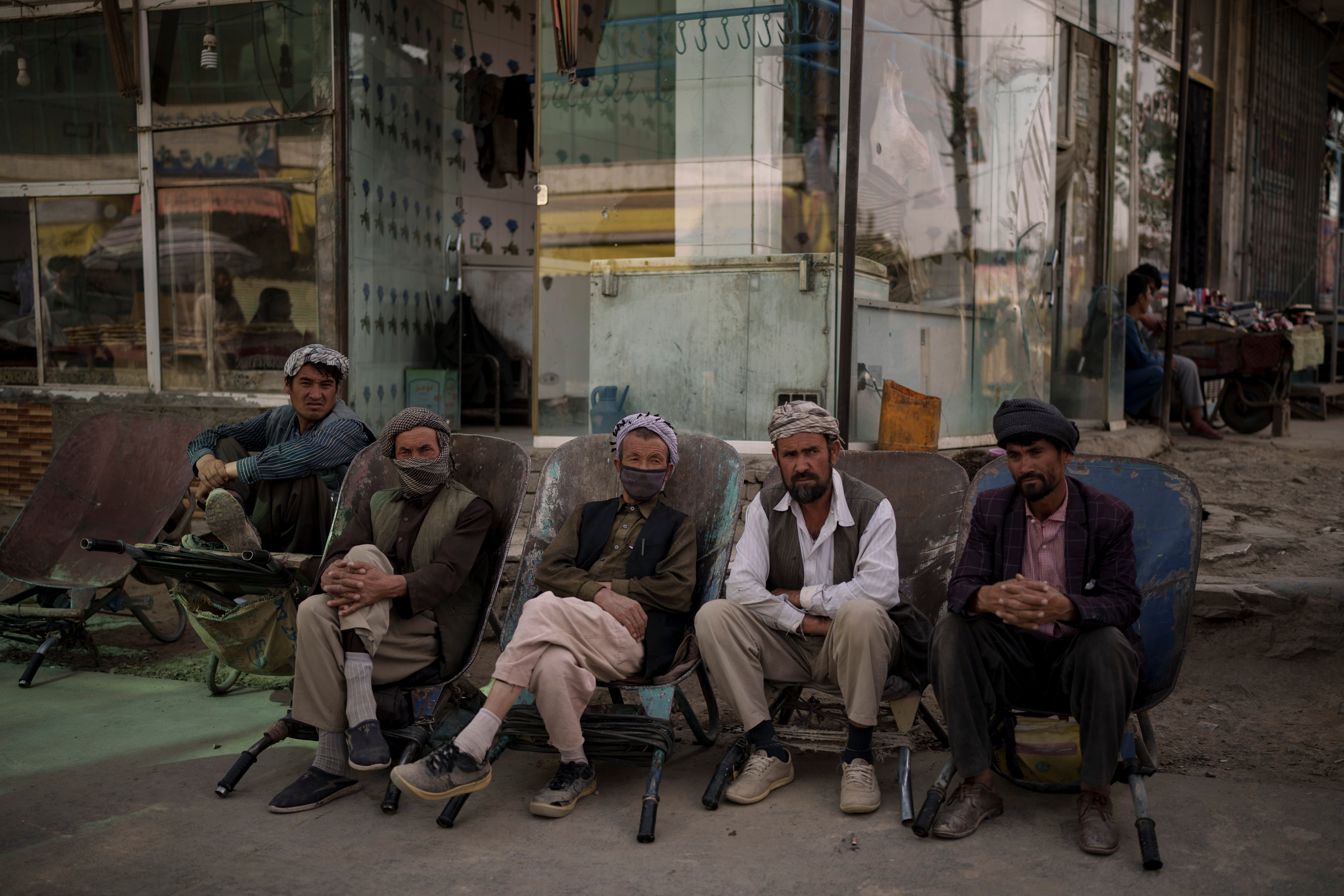ILO report says Afghan crisis causing massive job losses
The International Labor Organization says more than a half million people in Afghanistan have lost their jobs since the Taliban takeover in mid-August

Your support helps us to tell the story
From reproductive rights to climate change to Big Tech, The Independent is on the ground when the story is developing. Whether it's investigating the financials of Elon Musk's pro-Trump PAC or producing our latest documentary, 'The A Word', which shines a light on the American women fighting for reproductive rights, we know how important it is to parse out the facts from the messaging.
At such a critical moment in US history, we need reporters on the ground. Your donation allows us to keep sending journalists to speak to both sides of the story.
The Independent is trusted by Americans across the entire political spectrum. And unlike many other quality news outlets, we choose not to lock Americans out of our reporting and analysis with paywalls. We believe quality journalism should be available to everyone, paid for by those who can afford it.
Your support makes all the difference.More than a half million people in Afghanistan have lost their jobs since the Taliban takeover in mid-August, the International Labor Organization said in a report released Wednesday.
The ILO said the crisis has paralyzed the economy and slammed the labor market. The situation is especially devastating for women and for people working in farming, government posts, social services and construction, with many people losing their jobs or not receiving their wages.
Many companies are hard pressed to stay afloat, as thousands of Afghans flee the country each day. Between 700,000-900,000 jobs are likely to have been lost by June as work becomes more scarce, said the report by the ILO, the United Nations agency working to promote labor standards and decent work for all people.
The economic fallout from the takeover has been vast, with cash shortages and limits on bank withdrawals leaving both companies and individuals struggling.
The economy was already teetering after four decades of war, a severe drought and the pandemic. After the Taliban seized power amid a chaotic withdrawal of U.S. and NATO troops, the international community froze Afghanistan’s assets abroad and halted all funding, unwilling to work with a Taliban government given its reputation for brutality during its previous rule 20 years ago.
“The situation in Afghanistan is critical and immediate support for stabilization and recovery is required,” Ramin Behzad, senior coordinator of the ILO for Afghanistan, said in a statement.
“While the priority is to meet immediate humanitarian needs, lasting and inclusive recovery will depend on people and communities having access to decent employment, livelihoods and basic services,” he said.
Women held about one in five jobs in Afghanistan in 2020, but are now being prevented from working in some areas. Education for girls has also been limited, though Taliban leaders have said t hey hope to be able to open all schools for girls across the country after late March.
The ILO's report is the latest call for more international support for the Afghan people, as the U.N. warns 8.7 million Afghans are on the brink of starvation.
Last week, U.N. Secretary-General Antonio Gutteres urged the international community to fund a $5 billion humanitarian appeal, release Afghanistan’s frozen assets, and jump-start its banking system to avert economic and social collapse.
The ILO report estimates that female employment dropped by 16% in July-September, compared with what it would have been had there been no Taliban takeover. The decline for men was 5%, it said.
While a severe hardship, that suggests most women who were employed still have their jobs, working in the airport, customs, health and education among many other places.
Women’s rights had improved markedly over two decades of international presence in Afghanistan, but are seen as under threat with the return of the Taliban, whose earlier rule in the 1990s saw them virtually cloistered.
The ILO report noted that the worsening employment conditions also may lead to more use of child labor in a country where more than 1 million children aged 5-17 are working.
Many children are not in school or working — only four in 10 were attending school according to a survey conducted in 2019-2020.
UN agencies are working with Afghan companies and trade unions to try to provide crucial assistance and sustain community services, the report said.
____